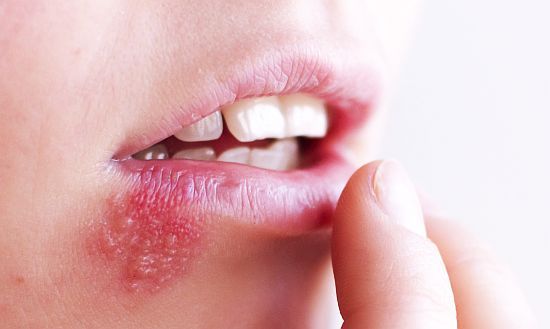Living with genital herpes means navigating periodic outbreaks, characterized by uncomfortable symptoms like itching, tingling, and painful sores. While antiviral medications are the cornerstone of managing the herpes simplex virus (HSV), many individuals seek complementary strategies to shorten outbreak duration, reduce severity, and minimize recurrence. Nutritional supplements, by supporting the immune system and potentially interfering with viral replication, offer a promising avenue for natural symptom relief.
It’s crucial to remember that supplements are not a cure for herpes and should be discussed with a healthcare professional, especially if you are on other medications or have underlying health conditions. However, when used judiciously, certain Genital herpes dietary supplement can be valuable allies in your herpes management plan.
Immune System Boosters: Your Body’s Best Defense
Herpes outbreaks often occur when the immune system is under stress. Strengthening your natural defenses is key to reducing the frequency and severity of symptoms.
1. L-Lysine: The Viral Inhibitor
L-Lysine is an essential amino acid widely researched for its potential role in herpes management. The theory is that lysine competes with L-arginine, another amino acid that the herpes virus requires for replication. By tipping the balance in favor of lysine, you may hinder the virus’s ability to multiply and spread.
- How it helps: May reduce the frequency, severity, and duration of outbreaks. Many users report a significant decrease in symptoms.
- Dosage considerations: Dosages for managing herpes often range from 1 to 3 grams daily, with higher doses sometimes used during active outbreaks. Always consult your doctor for personalized advice.
- Food sources: Rich in meat, fish, dairy, eggs, and legumes.
2. Zinc: The Antiviral Mineral
Zinc is an essential mineral with well-established immune-boosting and antiviral properties. It plays a critical role in immune cell function and has been shown to directly interfere with HSV replication.
- How it helps: Both oral and topical zinc applications have been linked to reduced outbreak duration and severity, and a longer time between outbreaks. Zinc helps support healthy cell growth, which is vital for healing.
- Forms: Available as oral supplements and topical creams/ointments. When using topically, ensure it’s specifically formulated for skin application.
- Food sources: Oysters, red meat, poultry, beans, nuts, and whole grains.
3. Vitamin C: The Antioxidant Defender
Known for its robust immune-enhancing properties, Vitamin C is a potent antioxidant that helps the body fight off infections and reduce inflammation.
- How it helps: Research suggests Vitamin C may contribute to reducing the recurrence of HSV, particularly when used alongside antiviral medications. It can also aid in faster healing of lesions.
- Food sources: Abundant in citrus fruits, bell peppers, strawberries, kiwi, and leafy greens.
4. Vitamin D: The Immune Modulator
Beyond its role in bone health, Vitamin D is crucial for immune system modulation. Adequate levels are associated with a reduced risk of various infections.
- How it helps: Vitamin D activates T-cells, which are frontline defenders against viruses. Optimal Vitamin D levels can contribute to a more resilient immune response against HSV.
- Food sources: Fatty fish (salmon, mackerel), fortified dairy and cereals, and exposure to sunlight.
5. Probiotics: Gut-Immune Connection
A healthy gut microbiome is fundamental to a strong immune system. Probiotics, beneficial bacteria, can support gut health and, consequently, bolster your body’s overall immune response.
- How it helps: Some preliminary research suggests certain probiotic strains may help stimulate an immune response against herpes infections. A balanced gut can contribute to overall systemic health, making the body less susceptible to viral reactivation.
- Food sources: Fermented foods like yogurt, kefir, sauerkraut, and kimchi. Probiotic supplements are also widely available.
6. Omega-3 Fatty Acids: Inflammation Fighters
Found in fish oil, flaxseed, and chia seeds, omega-3 fatty acids are celebrated for their powerful anti-inflammatory properties.
- How it helps: By reducing inflammation in the body, omega-3s can indirectly support the immune system and potentially mitigate the inflammatory response associated with herpes outbreaks. This can contribute to more comfortable and quicker healing.
Topical Support for Symptom Relief:
While not ingested, some natural topical applications can also provide symptom relief during an active outbreak:
- Lemon Balm (Melissa officinalis): Applied as a cream or oil, lemon balm has demonstrated antiviral properties and can help reduce the discomfort, redness, and size of lesions.
- Aloe Vera: Known for its soothing and wound-healing properties, aloe vera gel can be applied to sores to reduce irritation and promote faster recovery.
- Manuka Honey: This unique honey has potent antibacterial and antiviral qualities. Topical application has shown promise in reducing pain and itching and aiding in the healing of sores.
A Holistic Approach is Key
While these nutritional supplements can be valuable additions to your herpes management strategy, remember they are part of a larger picture. For optimal results, combine supplementation with:
- Antiviral Medications: Adhere to your doctor’s prescribed antiviral treatments for acute outbreaks and suppressive therapy if recommended.
- Stress Management: Stress is a major trigger for herpes outbreaks. Incorporate relaxation techniques like meditation, yoga, or deep breathing.
- Balanced Diet: Emphasize whole, unprocessed foods rich in vitamins and minerals. Pay attention to the lysine-to-arginine ratio in your diet, favoring lysine-rich foods.
- Adequate Sleep: Sufficient sleep is crucial for a strong immune system.
- Regular Exercise: Physical activity supports overall health and immunity.
By proactively supporting your immune system and addressing potential nutritional gaps, you can empower your body to better manage genital herpes symptoms, leading to fewer, less severe, and shorter outbreaks, and ultimately, a better quality of life. Always discuss any new supplement regimen with your healthcare provider to ensure it’s appropriate for your individual needs.







